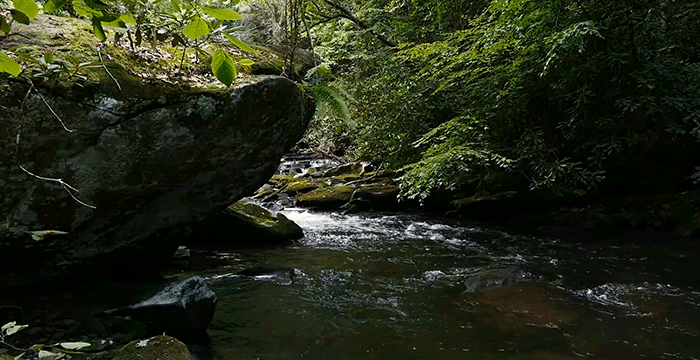|
|
| FAQ/Help |
| Calendar |
| Search |
|
#1
|
||||
|
||||
|
First, apologies if I posted this on the wrong forum.
Over the years I've been told I should try mindfulness as a tool to help reduce the negative effects of MDD, BPD, and Anxiety. I've been reluctant to embrace it primarily because I'm a skeptic and did not accept the possibility because there was no scientific data supporting the benefits of Mindfulness. In recent years that has changed. There is now significant scientific data that supports the benefits of Mindfulness, yet I'm still reluctant to embrace it. I've concluded the reason I'm so reluctant is because I feel it is a sneaky way to force onto me some sort of religion, a belief in a higher/supreme being. How does one embrace Mindfulness separate from any religious connotation? Is it possible? I know my aversion to organized religion is childhood baggage and it is the reason why I've had such a difficult time accepting Mindfulness as a treatment option. It almost feels as if I would be losing my free will and free thought if I embraced Mindfulness. Any thoughts?
__________________
Nikki in CO |
|
#2
|
||||
|
||||
|
Mindfulness has nothing to do with the spiritual or religion. It is merely paying attention to this moment, right now. You do not have to believe anything, you just have to learn to and practice focusing your attention in the here and now. Anxiety is always about the future and we cannot know the future. Some of my anxiety I deal with using my imagination, imagining a good future outcome instead of imagining a bad one. If my husband is late coming home from a business trip, it is because he has stopped to buy me a present, not because his plane crashed
 But if I am very anxious or upset and having trouble thinking, etc., then I focus on what is around me right now. One can only focus on one thing at a time so I keep my focus on what I am doing right that moment, get out of my head and use my 5 senses instead. You just control your mind and its jabbering by using your body/senses: Mindfulness Made Simple | Psychology Today But if I am very anxious or upset and having trouble thinking, etc., then I focus on what is around me right now. One can only focus on one thing at a time so I keep my focus on what I am doing right that moment, get out of my head and use my 5 senses instead. You just control your mind and its jabbering by using your body/senses: Mindfulness Made Simple | Psychology Today
__________________
"Never give a sword to a man who can't dance." ~Confucius |
|
#3
|
|||
|
|||
|
yeah, it developed from buddhism I think, but it doesn't have to have any religious meaning.
|
pachyderm
|
|
#4
|
|||
|
|||
|
|
|
#5
|
|||
|
|||
|
I am a person of religious faith, and find mindfulness has absolutely nothing to do with belief. It is about being aware of your own thinking in the moment. That's it in a very over-simplified nutshell.
|
pachyderm, spondiferous
|
|
#6
|
||||
|
||||
|
I agree with sierra: for me, mindfulness has to do with paying attention to what is going on in your own mind at any given time -- without trying to censor it at all. It can take practice to avoid the tendency to shy away from uncomfortable thoughts and feelings, to just accept that they are there and try to find out what they mean. Religion might come up, but that is only one thing you might be thinking about.
__________________
Now if thou would'st When all have given him o'er From death to life Thou might'st him yet recover -- Michael Drayton 1562 - 1631 |
|
#7
|
||||
|
||||
|
Mindfulness is a practice, more than anything, and it does, as mentioned elsewhere here, transcend belief. At the same time, many faiths have some form of mindfulness practice. Essentially, anyone can practice it. It is easy to associate it with Buddhism, and likely that's where its roots are. But it is a freestanding practice, and used in most mental health/recovery programs now that I have come across.
__________________

|
pachyderm
|
|
#8
|
||||
|
||||
|
http://m.psychologytoday.com/blog/cr...s-how-it-helps
http://psychcentral.com/blog/archive...ungs-red-book/ Here are a couple links. Carl Jung, is where mindfulness began, in the world of psychology. Hence, those that prefer Jungian theories and those that prefer Freudian theory, and those with a mix, somewhere in between. Best of Luck, discovering what works best for you. Sent from my LGMS323 using Tapatalk |
|
#9
|
||||
|
||||
|
Thanks everyone for your insights. I will continue my endeavor.
__________________
Nikki in CO |
|
#10
|
|||
|
|||
|
Hello, live2ski66. I wish you well.
|
live2ski66
|
|
#11
|
|||
|
|||
|
Quote:
i know you do CBT so i can see how paying attention to one's thoughts would go well with that.
__________________
~ formerly bloom3 |
|
#12
|
||||
|
||||
|
There are many mindfulness techniques that do not involve religion. It is very effective after some practice.
Here is a good article on it >>> New to Mindfulness? How to Get Started | World of Psychology One of my favourites is called, 'the eye of the storm.' Basically choose a nice safe spot where you know you will not get disturbed for at least 20 minutes. Sit or lie. Imagine that you are very safe. Imagine, gradually all around you a storm is brewing, a massive tornado where you are sitting in the middle of it. You are safe. Let the energy around you swirl around and around you for 5 minutes. You may feel some intensity as the energy swirls but you are safe and still. Then gradually rein it back in, imagine the storm gradually dying down, slowly dissipating. Breathe gently and imagine as it all comes to stillness once more. You are safe. This process should take around 20 minutes and takes practice. There are many variations and CD's you can buy to talk you gently through it. 
__________________
 Pegasus Got a quick question related to mental health or a treatment? Ask it here General Q&A Forum “Everybody is a genius. But if you judge a fish by it's ability to climb a tree, it will live it's whole life believing that it is stupid.” - Albert Einstein |
|
#13
|
||||
|
||||
|
I guess I'm the odd one out here was deep into Eastern religion as a kid and I do feel both mindfulness and meditation are quite spiritual.
But I realize I rarely agree with others.
__________________

|
|
#14
|
||||
|
||||
|
I think it's very difficult to separate mindfulness/meditation from spiritual practices. I am also a skeptic and would prefer a wholly non-religious/spiritual approach.
I do find that I feel better if I meditate. |
|
#15
|
|||
|
|||
|
Mindfulness meditation existed way before Carl Jung. It's a basic meditation practice of Buddhism. To the OP, you really don't have to worry about being forced into belief in some sort of god because Buddhism is nontheistic. The basic meditation practices are meant to be beneficial to anyone of any belief system and atheists. I am a Buddhist and an atheist. The Dalai describes himself as an atheist.
There is one lineage (or school) of Buddhism that is specifically meant to bring the practices to anyone and to take out religious/theistic stuff, Shambhala. They have good instruction on mindfulness (sometimes called Calm Abiding or One-Pointed Meditation). |
|
#16
|
||||
|
||||
|
There is a freebie mindfulness meditation app for mobile devices at calm.com which is very cool. I downloaded the iPhone app yesterday and have been playing around with it...getting it configured, etc. It takes you through a 7 step tutorial.
|
| Reply |
|
|